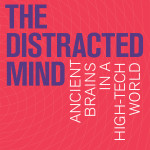Here’s a headline to get your attention: Action video games decrease gray matter, study finds.
The article opens with this alarming sentence:
“A new study suggests that playing action video games can be detrimental to the brain, reducing the amount of gray matter in the hippocampus.” [emphasis mine, ACW]
We have a number of reasons to be curious about this claim.
Primarily, researchers have debated one another with vehemence–and occasional vitriol–on the benefits and detriments of action video games–such as Call of Duty. This article seems to be an interesting addition to that debate.
The article itself is behind a paywall, but you can read the abstract here. Let me quote the first and last sentence of the abstract:
“The hippocampus is critical to healthy cognition, yet results in the current study show that action video game players have reduced grey matter within the hippocampus. [… ]
These results show that video games can be beneficial or detrimental to the hippocampal system depending on the navigation strategy that a person employs and the genre of the game.” [emphasis mine, ACW]
So, does this research show that video games can be detrimental to the hippocampus, as the article’s first sentence claims? Yes, it does.
But, as my highlighting makes clear, it also shows that video games can be beneficial to the hippocampal system.
In other words: the article’s scary headline — and several of its subsequent statements — mischaracterize the underlying article.
After all, if I wrote an article claiming that Leonardo diCaprio is the best and the worst actor of his generation, and you summarized my article with the headline “Watson calls DiCaprio This Generation’s Worst Actor,” you’d be technically correct, but substantively misleading.
You can’t just leave out half of the argument.
To be fair: the study itself is quite complex. It distinguishes, first, between action video games — like Call of Duty — and 3D video games — like SuperMario. It further distinguishes between two strategies that players use to navigate those games.
SuperMario-like games are beneficial to hippocampal gray matter whichever navigation strategy players use. For Call-of-Duty-like games, the benefit or detriment depends on the navigational strategy.
The Lesson for Teachers to Learn
I believe that we, as teachers, must increasingly inform our classroom practice with research from neuroscience and psychology. We should know, for instance, whether or not action video games do bad things to the brain.
(When I spoke with parents at a school in New York just two weeks ago, I got that very question.)
If we’re going to rely on scientific research, however, we need to hone our scientific skepticism skills.
For me, here’s rule number one: ALWAYS READ THE ABSTRACT.
If a book or a speaker or an article make a research-based claim, get the primary source and read the abstract–that’s the first paragraph that summarizes the key points of the study.
(It’s usually very easy to find the abstract: use Google Scholar.)
When you read the abstract, you can see right away whether or not the speaker, article, or book summarized the research correctly–or at least plausibly.
In this case, you can easily see that the article mischaracterized half of the the researchers’ conclusions. So, as a newly-minted skeptic, you know what to do: look elsewhere. This source isn’t strong enough to use as a resource for making school decisions.
(BTW: I have reached out to the website that published this summary. As of today–October 4–they’re sticking to their claims. If they make changes, I’ll update this post.)
Next Steps
If you’d like to hone your skepticism skills, you might check out the TILT curriculum at The People’s Science–developed by Stephanie Sasse (former editor of this blog) and Maya Bialik (former writer for this blog; speaker at the upcoming LatB Conference).




